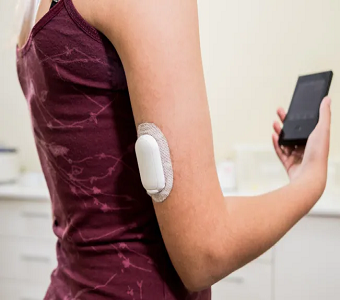Global Blood Therapeutics (GBT) has sold off considerably post ASH data. We think this has created a buying opportunity as data presented at ASH was positive overall. The two events likely weighing on GBT are 2 deaths in the compassionate use program and competitive threats from gene therapy /Crispr. We think these risks are misunderstood.
GBT Showing Clinical Efficacy in Adolescent; Consistent With Adult Data
Global Blood presented data for their HOPE-KIDS 1 Phase 2a Study in pediatrics with sickle cell disease. As seen below, after 16 weeks, patients saw a median of 1.1g/dL increase in hemoglobin. 55% of patients achieved a response of at least 1g/dL (primary endpoint also used in other GBT SCD studies). This response rate (55%) is in line with what GBT showed in their HOPE study, where responses ranged from 43% to 50%.
Importantly, the drug was very well tolerated with only one serious adverse event (Grade 3 rash). Patient reported outcomes (PRO), GBT’s secondary endpoint, acts as a self-monitoring tool that measures quality of life symptoms like fatigue, concentration and restlessness. 10/12 patients showed a reduction in total severity score from baseline to 16 weeks, further validating that patients had an improved quality of life on the drug.
Bottom line: The HOPE-KIDS data confirmed everything that GBT had shown with their earlier HOPE study. HOPE was the primary reason the stock ran in the first place, so fundamentally it does not make sense as to why GBT is trading sub-$40. The company is now focusing on a pivotal Phase 3 in a larger sample set. Interim data from Part A of HOPE study will trickle out in 1H 2018, with top-line readout expected 1H 2019.
Market Focused on 2 Unrelated Deaths in Compassionate Use Study, but Overlooked Clinical Efficacy in Severe SCD
GBT presented data in a 7 patient compassionate use study. It is important to note than these patients had exhausted all available treatment options and were considered to be diagnosed with the most severe SCD. Even so, 5/7 patients had at least 1 g/dL rise in hemoglobin levels.
Additionally, there were no serious adverse events and these patients experienced a 67% decline in hospitalizations and 60% decline in transfusions. Overall, GBT’s voxelotor showed it can be an effective treatment for terminally ill patients.
2/7 patients in this compassionate use program died. Unfortunately, this is what the market focused on and was the main reason why the stock fell below $40. In our opinion, the market overreacted to this news, overlooking the fact that these patients were seriously ill and the deaths were unrelated to GBT’s drug.
Competitive Threats are Real, But Ways Out
SCD is becoming a highly competitive field with gene therapy players like Bluebird bio (read here) also presenting promising data at ASH. Unlike GBT, which offers a SCD relief, Bluebird is hoping to cure SCD patients with gene therapy injections. Similarly, DNA editing technologies like Crispr are developing potential cures, but have yet to reach clinical trials. Crispr is expecting to launch clinical trials in 2018.
GBT is on pace to get to commercial stage sooner than its competitors, as Phase 3 data readout is expected in 2019. If all goes as planned, GBT should have at least a 1 year lead.
Another question mark surrounding competition is how the cost of gene therapy (~$400k range) will be covered by insurance. The majority of SCD patients are on Medicare/Medicaid. Will government-based insurances cover such a bill if there is an alternative oral drug (voxelotor) costing about 1/5th already commercialized? Although these questions are up for discussion, we believe they are a bit premature considering the earliest pivotal data readout is GBT’s in 2019.
GBT should have a year-end December pro-forma cash balance in the $220M range, enough to fund company into 2019. However, GBT stock is up 130% YTD and running a pivotal Phase 3. Don’t be surprised if the company is opportunistic at these levels to complete a raise.
- We think GBT is compelling under $40 and will be starting a small position
- ASH data was positive overall, but markets sold off because of two unrelated deaths and long term competitive threats. We think these risks are misunderstood
- Next catalyst is interim data from Part A of HOPE study in 1H 2018
Access This Content Now
Sign Up Now!




